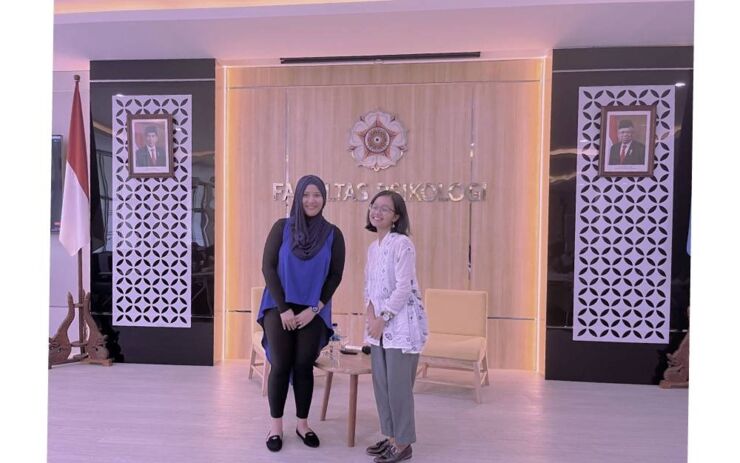Knowing access to effective mental health treatment can be world-changing for individuals, Dr. Ajeng Puspitasari is thinking on a global scale.
“Right now is really the time we need to put more attention globally on mental healthcare,” says Dr. Puspitasari, PhD, LP, ABPP, executive director for clinical services in Service Area B, which includes Appleton, Kenosha, Madison, Sheboygan, and Minnesota. “The World Health Organization has shown that depression is one of the topmost burdensome diseases in the world. We know that the suicide epidemic is spreading. It’s everywhere, not just in the United States.”
In January, Dr. Puspitasari took a trip home to Indonesia, where Universitas Gadjah Mada invited her to speak about culturally responsive strategies to implement evidence-based psychotherapeutic intervention. Open to all universities in Indonesia, more than 400 people attended the hybrid in-person and virtual talk, including her family.
“My parents always remind me that I’m a global citizen. They say to thrive globally, work hard, and contribute to society internationally,” she says. “But don’t forget home.”
Dr. Puspitasari left home at 14 to attend high school in New Zealand and then undergraduate and graduate school in the United States.
“My parents always encourage me to contribute back in small ways, especially within mental health in Indonesia,” Dr. Puspitasari says. “Indonesia has a huge need, because there’s not a lot of mental health providers.”
To help address that, she says Universitas Gadjah Mada is developing a center for evidence-based psychotherapy and working to implement behavioral activation in several primary care clinics in rural Java.
Dr. Puspitasari has been collaborating with the university since 2012. She calls it a true partnership, with minds coming together to share knowledge, raise questions, and drive the field forward.
“It’s very meaningful, because while I come in sharing knowledge that I have, I also get to learn so much from the experts they have in Indonesia. I can learn so much about the local culture, local wisdoms, and mental health settings they have – both the strengths and lack of resources,” she says. “I can marry these two worlds.”
Dr. Puspitasari says it’s also important to be sensitive to local culture and needs when discussing psychotherapy and mental health strategies.
“Indonesia historically was colonized by the Dutch for about 350 years,” she says. “We want to avoid just repeating the same cycle where we bring in Western technology and plop it in a rural area in Indonesia.”
As Dr. Puspitasari follows her parents’ advice to thrive globally while remembering home, she says this type of work means the world.
“I’m just excited. Rogers is supportive of having their experts share knowledge,” she says. “It’s a good space to be.”







